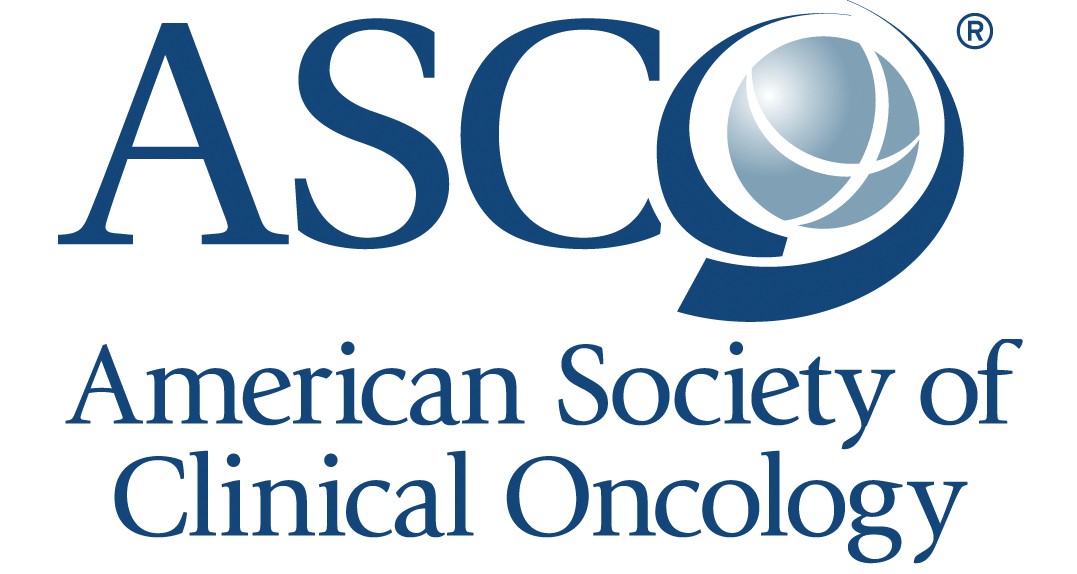
This year’s American Society of Clinical Oncology (ASCO) Annual Meeting was held from 1-5 June 2024, in Chicago, USA. The presentations are available to view on the ASCO website. Some affiliates of the International Kidney Cancer Coalition (IKCC) went to the meeting to keep up to date with the care and treatment of patients with kidney cancer. A brief “Take home messages” section is followed by more in-depth review of selected abstracts.
Take home messages
There were several interesting presentations about biomarkers for kidney cancer at ASCO this year. The presentations analysed biomarkers from tumour and blood samples taken from patients in the CLEAR, KEYNOTE-426 and IMmotion101 studies. There was also a presentation about a biomarker for the early detection of kidney cancer.
In abstract 4504, none of the biomarkers that were evaluated proved to be predictive of a better response to treatment with pembrolizumab plus lenvatinib. However, the combination therapy was superior to treatment with sunitinib regardless of biomarker expression.
In abstract 4505, researchers found that high levels of an inflammatory biomarker in the tumour, TcellinfGEP, were associated with better outcomes in patients treated with pembrolizumab and axitinib. However, regardless of biomarker status, patients did better on pembrolizumab plus axitinib when compared to sunitinib, and this biomarker does not help us choose between regimens.
Importance: The results from these trials help researchers identify biomarkers that could predict better outcomes, and even help in decisions about treatments for each individual patient. However, based on these results, the combination therapy remains superior to sunitinib, regardless of biomarker expression, and more work needs to be done to refine these biomarker strategies.
In abstract 4506, researchers suggested that elevated KIM-1 may be a biomarker to identify patients with higher risk of recurrence of kidney cancer, and to select for patients that will benefit from adjuvant treatment with atezolizumab. Importance: the goal of adjuvant therapy is to prevent disease recurrence; however, some patients will be cured with surgery alone. Biomarkers, such as KIM-1, could aid in the identification of patients that are at higher risk of recurrence and will benefit of additional treatment.
In abstract 4526, CA-62 proved to be a useful biomarker for early detection of kidney cancer. However, because it is not a specific biomarker for kidney cancer, the use of other biomarkers, in addition to CA-62, could become a strategy for kidney cancer screening.
In abstract 4532, an injectable form of nivolumab (subcutaneous nivolumab) was compared to nivolumab that is given by infusion into a vein (intravenous nivolumab). Subcutaneous nivolumab was shown to be as good as intravenous nivolumab. The safety of the subcutaneous nivolumab was comparable to that of intravenous nivolumab; immune-related side effects were manageable, and patients reported minimal bother by treatment side effects. Importance: These results support the use of subcutaneous nivolumab as an option for improving patient experience and is preferred by patients.
In abstract 4508, long-term survival data was presented for the avelumab plus axitinib combination compared to sunitinib in untreated patients with advanced kidney cancer. The avelumab plus axitinib combination did not significantly improve overall survival. Importance: These results confirm the approach of combining TKIs with immunotherapy for the treatment of advanced kidney cancer with long-term effectiveness and manageable side effects.
In abstract 4512, the analysis showed that combination therapies improved clinical outcomes for patients with metastatic chromophobe RCC compared to single therapies. Importance: The researchers are continuing this work and collaborating with other centres to increase the number of patients with metastatic chromophobe RCC in this study to collect further data and compare outcomes with other treatments.
In abstract TPS4611, a new VEGFR TKI called zanzalintinib was shown to be safe and effective in patients with metastatic clear cell RCC in a phase 1 study. This abstract describes a phase 3 randomised global study of zanzalintinib plus nivolumab in patients with advanced/metastatic non-clear cell RCC. Importance: The STELLAR-304 study is currently recruiting patients in Europe, North and South America, and the Asia Pacific region.
Abstract TPS610 describes a study with a new treatment for untreated metastatic kidney cancer, 177Lu girentuximab. Girentuximab is an antibody that is used to deliver radioactive lutetium (177Lu) directly to the cancer cells. Once in the cell, the radiation leads to DNA damage and cell death. This study hopes to show that damage to the tumour cell DNA caused by 177Lu girentuximab will activate the T cells of the immune system to attack the cancer cells. Importance: The study is about to start recruiting patients at MD Anderson Cancer Centre, Houston, Texas, USA.
Read the full report from the International Kidney Cancer Coalition here: IKCC ASCO 2024 kidney cancer highlights
